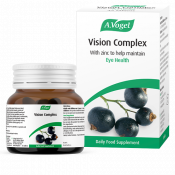What foods are bad for your eyes?
I’m sure we all know that carrots and other brightly coloured fruit and vegetables are packed with lots of eye-friendly vitamins and nutrients (if not, have a read of this blog, ‘The best foods for healthy eyes and eyesight’!). However, we might not all be aware that some foods we eat regularly are not only bad for our overall health, but specifically our eyes.
1. Table sauces and dressings
Table sauces and dressings are first on the list. They might not immediately spring to mind when you think of unhealthy foods, but they can be packed with high quantities of sugar and fats. There’s not much point in opting for a fresh, healthy salad if you’re going to drench it with sugary toppings!
Eating too much sugar is bad for your body in general, including your eyes. One study found a link between sugary foods and age-related macular degeneration (AMD) which results in blind spots in your central vision. This study found that participants whose diet contained a lot of high GI foods were most likely to have advanced AMD in at least one eye.
Foods with high GI (glycemic index) cause a spike in blood sugar levels whereas low GI foods don’t; researchers estimated that 20% of AMD cases in this study could have been reduced if the participants had consumed foods lower on the glycemic index.1
So, you might not realise that your healthy diet actually contains high levels of sugar. Although you might think you’re making all the right choices by foregoing that lunch-time chocolate bar or a late-night raid of the sweetie aisle, you could be unintentionally dowsing your salad in sugar!
Top tip: Instead of smothering your food in sugary shop-bought sauces, why not try making your own dressing using fresh ingredients? For 3 simple salad dressing recipes you can make at home, click here. Alternatively, opt for dressings with a low GI such as natural balsamic vinegar.

2. Fried foods
The next food on the list might not be so surprising. Fried foods might be a nice treat but your body will not thank you if you’re putting lots of these on your plate, a lot of the time!
Obviously, fried foods are full of fatty oils from the cooking process, and these are not eye-friendly ingredients. Again, these foods have been shown to contribute to AMD as well as raise cholesterol. Too much bad cholesterol can lead to clogged arteries, increasing risk of heart attack, stroke and even vision loss.
One study found that it is the type of fat, rather than the quantity, which is responsible for higher risk of eye disease. Vegetable, monounsaturated and polyunsaturated fats are thought to be the worst contenders, along with linoleic acid, and these are the exact ingredients that chips and crisps tend to be fried in! Plus, these harmful fats can also be found in peanut butter, margarine and processed cakes and cookies.2 So, give your eyes a break and avoid over-indulging in these fatty foods.
However, certain fats are actually healthy for your eyes. Omega-3 fatty oils found in fish can be beneficial for your body and your eyes, by protecting the membranes around your brain and skin cells, keeping your brain ticking and your skin looking young! To keep your eyes keen, opt for these healthy fats and avoid the likes of chips, crisps and other junk foods which are filled with the wrong kind of oil.
Top tip: Why not try baking home-made chips in the oven? This way you know exactly which fresh ingredients are on your plate, as well as how much oil is went into making them. Here’s a recipe for home-made healthy chips and dip to get you started!

3. Sweetened drinks
Another usual suspect has made it to my list of foods which are bad for your eyes: sweetened drinks. As I’ve mentioned, consuming too much sugar can increase your risk of AMD, and this includes fizzy drinks filled with sugar. Drinking copious amounts of fizzy, sugary drinks is linked to obesity, which in turn has been linked to increased risk of type 2 diabetes.3 Diabetes can have lots of implications for your eyesight; you can read more about diabetes here.
However, while sugary drinks might be an obvious one to avoid, it might be less obvious that artificial sweeteners can be just as bad for you! So, if you’re trying to lose weight or make healthier choices, be wary of ‘sugar-free’ or ‘diet’ drinks. These tend to have fewer calories because they’ve ditched the sugar, but that doesn’t necessarily make them a healthy alternative.
There is a lot of controversy around artificial sweeteners. For instance, it has been suggested that certain artificial sweeteners, such as cyclamates, can make your eyes more sensitive to light.4 In general, if you’re trying to avoid sugar, it’s best to stick to natural alternative such as stevia, which won’t spike your blood sugar levels (which could impact your sight if you have diabetes) or have any nasty side effects.
Top tip: Drink plenty of plain water throughout the day; this will be great for your overall health and will hydrate your eyes, providing them with sufficient lubrication to keep them clean and healthy. Infuse your water with fresh fruit for more flavour, or try drinking naturally fruity herbal teas if you want something slightly sweeter.
4. Processed meats
Processed meats are notoriously bad for your overall health, as well as your eyes. I’m talking bacon, sausages and processed lunch meats like cooked ham – all of which have a high salt content. Salt has been used as a preservative for hundreds of years, but nowadays it is often added to food in large quantities, and can have a huge impact on your health.
Adults should eat no more than 6g of salt (2.4 g of sodium) per day. Meat has the highest salt content out of all foods in the human diet (around 0.6g per pound)5 and when meat is processed, this number only increases!
High salt levels in your diet can lead to water retention as the kidneys try to balance out the vital minerals sodium and potassium. As a result, your eyes can become puffy and swollen because your body is holding onto all the water it can to stay hydrated.
Plus, the more salt you eat, the higher your blood pressure will be, which can have a myriad of consequences for your health. If high blood pressure goes untreated, it can lead to eye disease and even have an impact on your eyesight as the blood vessels in your retina (at the back of your eye) can become damaged.
Top tip: Avoid processed meats and choose fresh, organic meats which haven’t been tampered with. Why not ditch the salty ham sandwiches and opt for a filling chickpea and spinach curry for lunch instead? Or, try this kale and avocado salad bowl (but don’t smother it in sugary dressings!).

5. Ready meals
However convenient or tasty these meals may be, they are certainly not doing your body any favours! Not only are they packed full of preservatives to expand their shelf-life, ready meals also contain high quantities of sugar, even the savoury ones. As we know, a high-sugar diet increases your risk of diabetes-related eye conditions as well as AMD.
Fat content in ready meals is also very high, and don’t be fooled by the ‘slimming’ options you may see on the shelves. Although a product may advertise itself as being ‘low-fat’ or ‘fat free’, this doesn’t make it healthy! Often, this fat is replaced by chemicals or more sugar. Plus we do need certain fats to keep our bodies (and eyes!) ticking over - remember those omega-3 fatty acids I mentioned earlier?
Top tip: If you’re short on time during the week or at dinner time, why not try making some healthy, home-made recipes and freezing them in handy portions? On those nights when you can’t be bothered cooking or don’t have time to wait for the oven to heat up, you can choose pre-made meal and zap it in the microwave in minutes – without having to worry about all that excess salt, sugar and fat!
Here are some recipes to get you started:

2 https://www.macular.org/junk-food
3 https://www.nhs.uk/conditions/diabetes/
5 https://www.ncbi.nlm.nih.gov/pmc/articles/PMC4105387/









